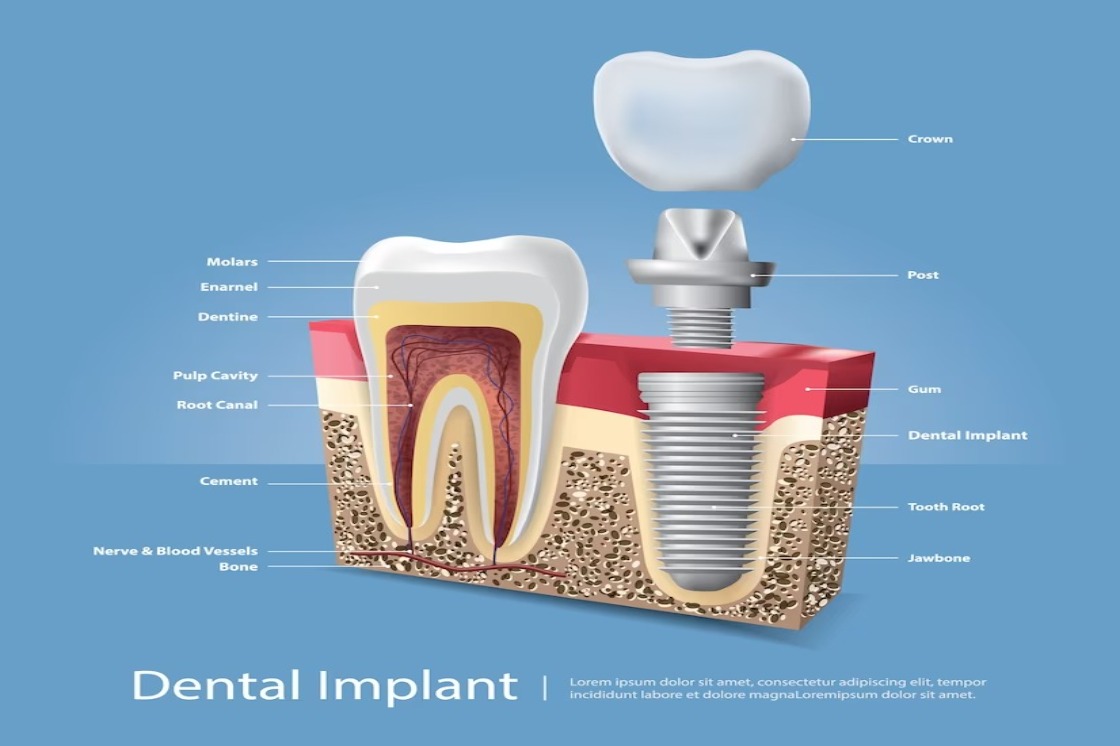
In the realm of dental health, tooth implants have emerged as a revolutionary solution to restore missing teeth and enhance overall oral well-being. Among the many questions that individuals contemplating this procedure often ask is, “How long does a tooth implant last?” In this comprehensive guide, we will delve into the factors influencing the longevity of tooth implants, discuss the ideal time for a tooth implant, explore the reasons behind choosing this dental solution, and provide a detailed overview of the entire process.
How Long Does a Tooth Implant Last?
The longevity of a tooth implant is a pivotal consideration for those seeking a permanent and reliable solution for tooth loss. On average, tooth implants are designed to last a lifetime. Studies suggest that the success rate of dental implants is around 95-98%, showcasing the effectiveness and durability of this dental procedure. Factors such as proper oral hygiene, lifestyle choices, and regular dental check-ups play a crucial role in ensuring the extended lifespan of tooth implants.
Time for a Tooth Implant?
The timing for a tooth implant is a crucial aspect that significantly impacts the overall success of the procedure. In general, the ideal time for a tooth implant is shortly after tooth loss or extraction. The jawbone’s condition and density play a vital role in the success of the implantation process. Timely implantation helps preserve the natural bone structure, providing a solid foundation for the implant. However, advancements in dental technology and techniques also allow for successful implantation in cases where tooth loss occurred several years ago.
Why Choose a Tooth Implant?
Understanding the reasons behind choosing a tooth implant is essential for individuals weighing their options for tooth replacement. Tooth implants offer numerous advantages over traditional alternatives like dentures or bridges. Firstly, they provide a permanent and stable solution that mimics the natural tooth structure. Secondly, implants help maintain the integrity of the jawbone by preventing bone loss, a common issue with other tooth replacement methods. Additionally, tooth implants do not rely on adjacent teeth for support, preserving overall oral health.
Factors Influencing Longevity
Several factors contribute to the longevity of tooth implants. Proper oral hygiene practices, including regular brushing, flossing, and dental check-ups, are paramount in preventing complications such as peri-implantitis, an inflammatory condition that can affect the tissues surrounding the implant. Lifestyle choices, such as avoiding smoking and limiting alcohol intake, also positively impact the success and durability of dental implants. Additionally, following post-implant care instructions provided by the dentist is crucial for ensuring the long-term success of the implant.
Maintenance and Aftercare
To maximize the lifespan of a tooth implant, individuals must adhere to a diligent maintenance and aftercare routine. Regular dental check-ups, professional cleanings, and X-rays are essential for monitoring the implant’s condition and detecting any potential issues early on. Dentists may recommend special cleaning techniques and tools to ensure proper oral hygiene around the implant. By following these guidelines, individuals can contribute significantly to the lasting success of their tooth implant.
Conclusion
In conclusion, the question “how long does a tooth implant last?” is met with a reassuring answer: dental implants are designed to last a lifetime with proper care. The ideal time for a tooth implant is often shortly after tooth loss, and the decision to choose this procedure is supported by its numerous benefits over traditional tooth replacement options. By understanding the factors influencing longevity and adopting a proactive approach to maintenance and aftercare, individuals can enjoy the lasting benefits of a healthy and functional smile through tooth implants.




